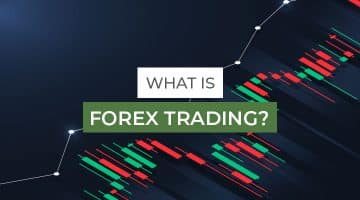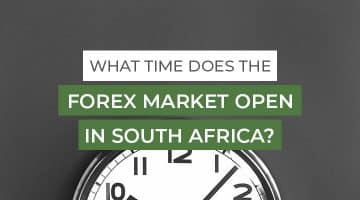Forex Trading in Namibia

In this article
The majority of beginner traders are charmed by stories of successful forex traders in Namibia.
Many Namibians like the idea of forex trading but don’t know where to start.
So, we decided it would be helpful to write a complete guide on forex trading in Namibia. If you are a forex aspirant based in Namibia, this guide is for you.
Overview
Namibia is a lower-middle-income country with a per capita GDP slightly higher than the average for Sub-Saharan African countries.
The Bank of Namibia, contrary to common opinion, does not forbid online forex trading. Despite the fact that new rules and regulations for traders were implemented in late 2019, it is still very possible to trade forex and make money as a Namibian citizen.
The Namibia Financial Institutions Supervisory Authority (NAMFISA) has made no effort to compel foreign brokers to obtain local supervision, so forex brokers in Namibia remain largely unregulated. Therefore, you should choose a regulated forex broker to protect your funds.
Getting started
Forex trading is becoming increasingly common in Namibia. Over the last five years, the amount of forex traded in Namibia has increased over the years.
Developments in online technology increased internet connectivity in Namibia, and increased competition among brokerages have made forex trading more available and reduced overall trading costs.
To get started in forex, all you need is:
- Setup a reliable internet service: The first thing you’ll need to trade is a trustworthy internet provider. Before you begin, run a speed test on your desktop computer, phone, or tablet to ensure that your connection is secure.
- Select a broker: All forex trading in Namibia must be done through commercial banks, registered brokers, or another bureau of exchange, according to the Bank of Namibia. Before opening an account with a broker that offers forex trading to Namibians, do your research.
- Fund your account: The Bank of Namibia suggests that you deposit at least N$1.6 million into your account before beginning forex trading, but you can deposit up to N$6 million into a foreign account. Connect your bank account and fund your forex trading account with an amount that is suitable for you.
- Make your first trade: Once your forex broker has received and processed your funds, you can place your first trade.
What do you need to know as a beginner Namibian trader?
1. Learn the basics first
Suppose you have been to a foreign country. In that case, it is likely that you may have converted your local currency, i.e., Namibian Dollars (N$), to another currency like Euro or a U.S. Dollar. If you exchanged your currency before, then you have already traded in the forex market.
Any exchange in a forex market requires the simultaneous buying and selling of one currency for another, which is why these are referred to as currency pairs.
As a forex trader, you’ll come across a lot of terms, so let’s define them:
Pip
A pip is the smallest decimal value in a forex pair. It is the last decimal in the quote currency.
Let’s say the value of GBP/USD is 1.4000, then the last decimal value in it is the pip. In this case, zero is the last value. The movement from 1.4000 to 1.4001 is referred to as one pip.
Leverage
Leverage is the use of borrowed money (referred to as capital) to invest in a currency. The idea of leverage is widely used in forex trading. You can exchange larger positions in a currency by borrowing money from a broker. Therefore, leverage increases the returns from changes in the exchange rate of a currency pair.
Bid/ask
The Bid price is the amount of money a forex trader is willing to pay to sell a currency pair. The ask price is the price at which a trader can purchase a currency pair.
Both of these prices are given in real time and are updated on a regular basis. For example, the bid price for the British pound against the U.S. dollar is 1.4000, which is the price at which a seller wishes to sell the GBPUSD.
If a seller believes a currency will fall in value, he or she will sell at the bid price to profit from the decline. If the British pound is trading at 1.4020 against the U.S. dollar, that is the price a trader is willing to pay to buy the currency pair.
Spread
The difference between the buying and the selling prices is called the spread. Your forex broker will charge you this spread. Each broker has its specific spread on currency pair, and it varies from broker to broker.
Forex lot sizes
A lot is a unit of measurement used to express standard quantities of currency transactions.
When you place orders on your trading platform, orders are placed in sizes quoted in lots.
There are three lot sizes in forex:
- Standard Lot – 100,000 units
- Mini Lot – 10,000 units
- Micro Lot – 1,000 units
2. How does the forex market work?
The forex market is where currency pairs are traded. Currencies are important because they allow people to buy goods and services both locally and across borders. To conduct foreign trade and business, international currencies must be exchanged.
One distinguishing feature of this global market is the absence of a central marketplace for foreign exchange.
Rather, currency trading is done over-the-counter (OTC), which means that all transactions take place through computer networks between traders all over the world, rather than on a single centralized exchange.
The market is open 24 hours a day, five and a half days a week, and currencies are traded globally in London, New York, Tokyo, and Sydney—across almost every time zone.
3. Security
Because the forex market has become accessible to everyone, you want to confirm that everything goes as expected so that you can trade without worry. You must understand that security should be one of your top priorities.
So, make sure to go through the brokers’ website before opening your trading account. If you see anything shady, refrain from opening an account with that broker.
4. Payment options
Namibia’s banking system is modern and closely linked to that of South Africa. After Namibia’s independence, the country’s payment system has undergone significant changes. The Central Bank of Namibia handles all payment transactions in Namibia.
DPO is Namibia’s leading payment service provider, offering:
In-store and online payment processing of all currencies, both local and global.
All payment methods available in Namibia – mobile, cross-border, eWallets, and cards.
So, you can use DPO as your payment option.
Forex trading example in Namibia
Let’s look at an example of how a Namibian trader could approach forex trading.
You agreed to invest in the USD after funding your account with N$1 million. One Namibian dollar is equivalent to $0.067 USD after measuring the spread that your broker takes in return for facilitating your trade. You exchange N$1 million for USD and now have $67157 USD in your forex account.
Assume the value of N$ rises in the market. In that case, we would pay less N$ for each USD bought. That also implies that for every USD sold, you will receive more N$ than you charged. The difference between the N$ charged and the KES earned is the profit you make.
How to open a forex trading account in Namibia?
You can open an account by choosing a regulated forex broker and open an account with that broker. We’ll talk about forex regulations in Namibia later.
Because of advances in technology, opening a forex trading account is now relatively simple. Here are the steps on how to open a forex account in Namibia
- Visit the broker’s website and look over the account types. This can range from small-scale accounts with low minimum deposits for new traders to accounts with advanced features for professional traders.
- Fill out an application form.
- After completing the application, you will be assigned a username and password that will allow you to access your account.
- Log in to the client portal of the brokerage.
- Arrange for funds to be transferred from your bank into your account. This can be done with a check, credit or debit card, or an electronic transfer from your bank account. It should be noted that using a credit card for this purpose may result in interest charges.
You are now ready to begin forex trading once your account has been funded. Before you make your first trade, you can check any instructions or special details that your broker offers about the use of their trading platform.
Some brokerages may offer a demo account to allow traders to practice before actually putting money into trading. This is helpful if you are new to the world of forex.
Namibian forex regulations
According to the central bank of Namibia,
“Dealings in foreign currency must only be done at Authorized Dealers, i.e., Commercial Banks and Bureau De Changes.
In terms of the Exchange Control Regulation 2(1), it is illegal for an unauthorized person to buy or sell foreign currency in Namibia.
Individuals must approach an Authorized Dealer of their choice for all foreign exchange-related needs”.
There is no formal regulatory authority for the forex industry in Namibia.
How much capital do you need to start trading in Namibia?
Many brokers offer a wealth of options for opening accounts. Both of these accounts need a minimum account balance.
Many brokers have a $5 minimum, but we recommend opening a trading account with a $500 minimum. This means that a substantial position can be taken in trading, and a fair profit can be made on market fluctuations.
Bear in mind that a position is determined by the balance held and the leverage offered by the broker. A day trader should not risk more than one percent of their forex account on a single trade. To put it another way, if you have $500 in your account, you should not risk more than $5 per trade.
Trading positions are also affected by the lot size chosen. As previously mentioned, you can trade in Standard lots (100,000 units), Mini lots (10,000 units), or Micro lots (1000 units).
Many Namibian traders believe that there is a limit to how much money they can make from forex trading. This is not the case.
The Bank of Namibia only has a yearly limit on the amount of money you can withdraw from your foreign brokerage account.
Though you can only deposit a maximum of N$6 million into your brokerage account, there is no limit to the amount of money you can earn and withdraw to your domestic bank account. This means that as a Namibian citizen, you have a good chance of making money by forex trading.
Though it is possible to make money on foreign exchanges, you must follow the rules outlined in the Currency and Exchanges Act and the Bank of Namibia’s Exchange Control Regulations.
You must keep track of and pay taxes on any profits made from forex trading, and you can only invest with your own capital. This means that borrowing money from your broker or trading on someone else’s behalf can result in a fine from the Bank of Namibia.
Best forex trading platforms for Namibian traders
The best forex trading platforms for Namibian traders are those offered through forex brokers. The MT4 platform is available at every broker, while some brokers also provide the MetaTrader 5 and cTrader platforms.
What is the best time to trade forex as Namibian?
The best time to trade forex in Namibia is between 11 a.m. and 5 p.m. when both the London and New York sessions are active and overlap. During these trading hours, volatility will be at its peak.
While you can trade at any time, being a night owl will be expensive for the majority of traders.
The best time for trading forex in Namibia according to four major forex sessions is:
- 11 p.m. – Sydney session
- 3 a.m. – Tokyo session
- 11 a.m. – London session
- 3 p.m. – New York Session
If you can wake up during the overlapping sessions between Tokyo and London or London and New York, you can take advantage of the most liquid and volatile sessions.
Is forex trading legal in Namibia?
There a misconception that forex trading isn’t allowed in Namibia. However, Namibia’s central bank has restated its policy on online forex trading in 2020.
Emma Haiyambo, the bank’s director of strategic communication, explained in the statement:
“The bank does not prohibit the online forex trading; however, members of the public who do so should utilize their own funds and not solicit funds from the public to invest on their behalf under any pretence, as that contravenes the applicable laws”.
The statement was released on August 7, 2020, following a peaceful protest by a group of people who gave their money to forex traders Michael Amushelelo and Gregorie Beni Cloete for investment.
So, forex trading is legal in Namibia.
Forex trading strategies for Namibian traders
The key to profiting from forex trading is to develop a strong trading strategy. Many traders use technical analysis to identify candlestick trends that indicate a currency’s value will change soon.
Here are some of the common forex trading strategies:
1. Scalping
This method involves taking advantage of extremely short-term market movements. Scalpers enter and leave the market rapidly in order to benefit by a few pips at a time.
2. Day trading
In general, day trading strategies limit all trades to a single trading session. Day traders buy and sell during the trading session, but they close all positions by the end of the day to avoid the additional risk associated with overnight positions.
3. Trend trading
Another common forex trading strategy is trend trading. It’s also easy for beginners to understand.
Detecting an upward or downward trend in a currency price movement and then selecting trade entry and exit points is the essence of trend trading. These points are based on the currency’s market positioning within the trend and the relative intensity of the trend.
4. Momentum trading
Momentum strategies consider both price and volume, and it often employs visual tools such as oscillators and candlestick charts.
5. News trading
If you want to stay up to date on economic and geopolitical news, news trading might be for you. The strategy involves taking advantage of rapid fluctuations in the exchange rates of major currency pairs such as EUR/USD or GBP/USD following a main economic news announcement.
6. Swing trading
Swing trading is a technique that involves entering and leaving the market using momentum technical indicators. Swing traders are more concerned with buying low and selling high if they go long or selling high and buying low if they go short. Since the strategy has no time limits, swing traders will trade overnight.
FAQ
Is forex trading illegal in Namibia?
No, trading forex is legal in Namibia. There have been a few cases of traders trying to lure investors to shady schemes. However, the central bank of Namibia has now allowed trading forex.
How do you get started with forex trading in Namibia?
You may begin trading forex in Namibia by searching for a broker who meets your trading requirements, opening an account, and making a deposit. Before operating a live trading account, try your hands on a demo account.
How much capital do I need to begin trading forex?
Some forex brokers allow you to start trading with as little as $1. Others require you to start with $100 up to $1000. It depends on how much you want to invest.
Which African countries are known for forex trading?
Pros of forex trading in Namibia
Global market: When it comes to the pros of trading forex, the sheer size and volume of the forex market have no competitors. Traders from around the world buy and sell currency pairs at all hours of the day and night, making forex a truly global marketplace with plenty of profit potential.
Low investment: You can begin trading in the forex market with as little as N$ 75, as brokers now have very low minimum deposits and very high leverage. However, you should begin trading with a capital of at least $1000 and never lose more than 5% of your capital on a single trade.
Accessibility: One of the most significant benefits of forex trading is its accessibility. It is relatively easy to join and does not require a significant initial investment like the stock market, which explains its popularity among novice traders.
Low transactions cost: The forex market not only needs little capital to start, but it also offers low transaction costs. Brokers usually profit from spread, which is calculated in pips and is included in the price of a currency pair.
Buy/sell: One of the benefits of forex trading is that you have the luxury to either buy or sell a currency pair depending on the position of the market.
Cons
Volatility: Forex is concerned with currency exchange rates and currency pairs. The forex market can be unpredictable. Exchange rate fluctuations can be caused by various economic, geopolitical, social, and other factors. A currency pair that is profitable today may lose money tomorrow.
Shady brokers: Regulated brokers assure that your money will be used solely for trading purposes, lowering the risk. Unregulated brokers can misappropriate investor funds and mislead inventors with fraudulent schemes.
To safeguard your investment and to protect yourself from fraudulent activities, you should always trade with regulated brokers.
Bottom line
If you are a beginner, you should spend as much time as possible learning about the fundamentals of forex trading and the risks and strategies involved.
If you’ve mastered the basics, open a demo account with your preferred broker. Before you have a solid strategy that works, trade on the demo accounts for at least three to six months.
Open a real account until you’re confident in your trading strategy. Begin with a small number, such as $500, and trade with the smallest lot size available.
Don’t put more money at risk than you can afford. A good risk management plan is to never risk more than 1% or 2% of your trading account.
If you are a beginner and want to hop on the forex train, this guide can help you a lot. If you don’t understand anything, reread the guide, you’ll get all your answers.
Jason Morgan is an experienced forex analyst and writer with a deep understanding of the financial markets. With over 13+ years of industry experience, he has honed his skills in analyzing and forecasting currency movements, providing valuable insights to traders and investors.
Forex Content Writer | Market Analyst
Relevant Posts

What is Forex Trading all about?
[top_three_brokers] What is Forex trading? How does Forex trading work? Forex trading is the buying and selling…
Read more

What Time Does the Forex Market Open in South Africa?
[top_three_brokers] There are four major Forex centres worldwide: New York, London, Tokyo, and Sydney. Because…
Read more

What are Index Points?
[top_three_brokers] Do you know what the index point is? A market index point is a…
Read more

Should I Use a Welcome Bonus?
[top_three_brokers] A welcome bonus is an introductory type bonus that is offered to the new…
Read more

How Does Forex Trading Work?
[top_three_brokers] Forex, or the foreign exchange market, differs significantly from stock trading. Therefore, these differences…
Read more

What are forex trading strategies?
[top_three_brokers] As a trader, you may have come across the phrase, "forex trading strategy." Is…
Read more
Is Forex Trading Profitable?
[top_three_brokers] In the past few years, forex trading has grown a lot, with more and…
Read more

Forex Tick Volume Explained
[top_three_brokers] Forex trading is all about volume. Financial institutions, banks, retail traders all make the…
Read more
4 Tips for Choosing a Forex Broker
If you are a trader in the Forex or foreign exchange market, then there is…
Read more

MetaTrader 6
MetaTrader 6 Release Date - Upgrade from MetaTrader 5? Beginners to professional traders have been…
Read more

What is Forex Trading all about?
[top_three_brokers] What is Forex trading? How does Forex trading work? Forex trading is the buying and selling…

What Time Does the Forex Market Open in South Africa?
[top_three_brokers] There are four major Forex centres worldwide: New York, London, Tokyo, and Sydney. Because…

What are Index Points?
[top_three_brokers] Do you know what the index point is? A market index point is a…

Should I Use a Welcome Bonus?
[top_three_brokers] A welcome bonus is an introductory type bonus that is offered to the new…

How Does Forex Trading Work?
[top_three_brokers] Forex, or the foreign exchange market, differs significantly from stock trading. Therefore, these differences…

What are forex trading strategies?
[top_three_brokers] As a trader, you may have come across the phrase, "forex trading strategy." Is…
Is Forex Trading Profitable?
[top_three_brokers] In the past few years, forex trading has grown a lot, with more and…

Forex Tick Volume Explained
[top_three_brokers] Forex trading is all about volume. Financial institutions, banks, retail traders all make the…
4 Tips for Choosing a Forex Broker
If you are a trader in the Forex or foreign exchange market, then there is…

MetaTrader 6
MetaTrader 6 Release Date - Upgrade from MetaTrader 5? Beginners to professional traders have been…


